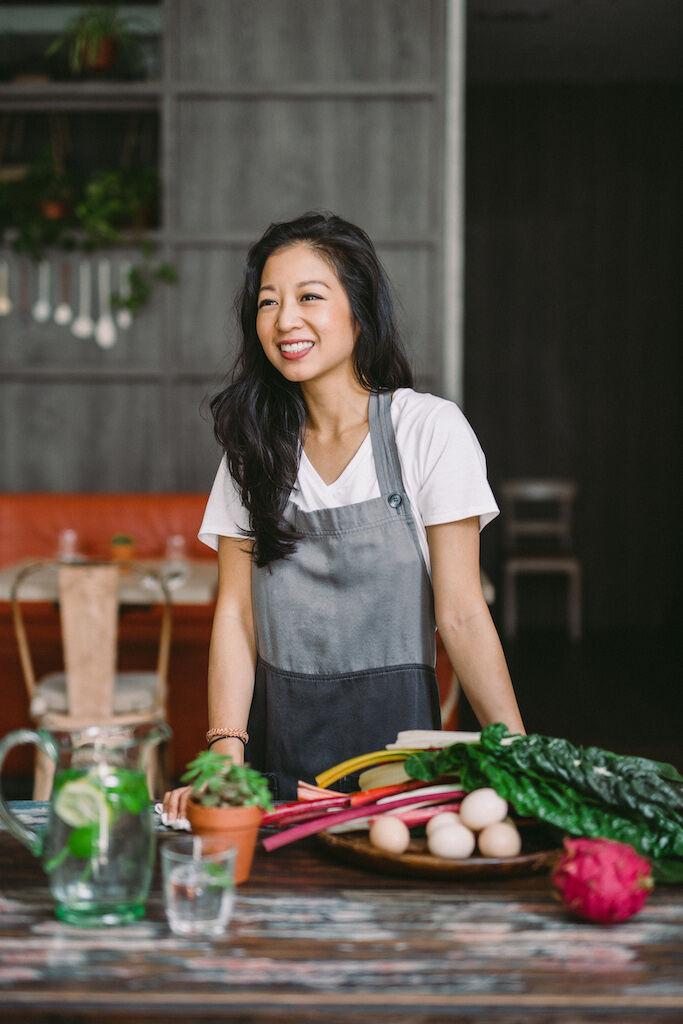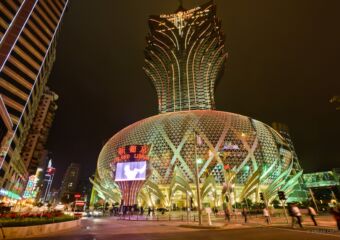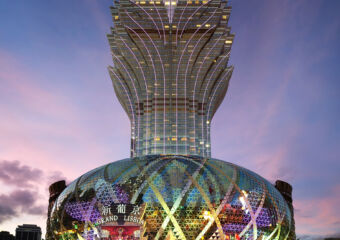It might have seemed that experiential dining was just a trend but this culinary revolution is definitely here to stay. Just as Peggy Chan blossomed from Grassroots to Nectar in Hong Kong, this integrative dining experience focused beyond presentation, flavor and good food. More than just a multi-sensorial journey, it’s an awakening of the growing plant-based lifestyle in the city and the clamor for healthy options.
It’s important to understand the origin of Peggy Chan as the founder and visionary behind the sustainable dining brand. To understand her metamorphosis is to also fathom her creative core and dedication to excellence. Macau Lifestyle learns all that and more in this intimate interview.
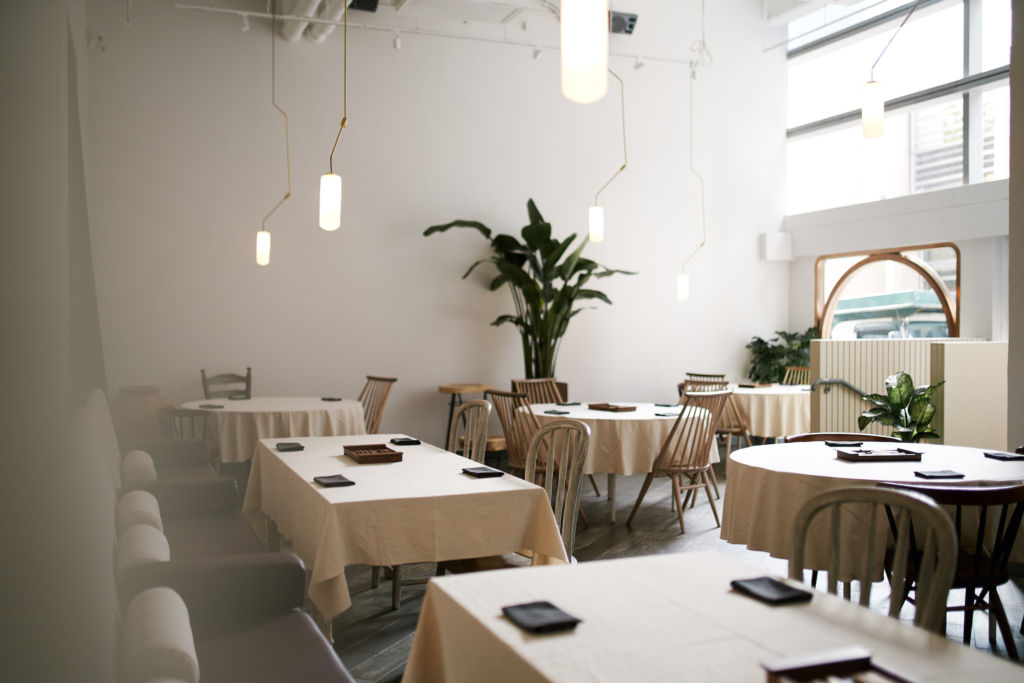
Could you tell us all about Nectar?
Nectar is a second stage of what Grassroots is. It’s a derivative of what we used to do at Grassroots. It follows the same ethos and principles of how we source and introduce food. However, the service is different at Nectar. It’s not casual dining. We’ve decided to focus more on service and that means slowing down, giving the tasting menus more emphasis. With that goal comes more connection with customers. There’s more time for us to explain the A to Z of the making of each dish. This is something I truly want to bring back. We’ve become busy that it’s difficult to connect with customers. We want to give more meaning to eating. And experiential dining is all about acquiring new knowledge and be inspired by the whole experience.
Why the change from Grassroots to Nectar? Has your cooking philosophy changed? How are the two different?
I have several reasons but the main one is simply because I’ve grown as a chef. I wanted to grow in my craft. I trained in French culinary arts and that’s the backbone of my training and I wanted to bring that back. There is still no such thing as progressive fine dining in Asia and I guess I want to be the first to do that and tap into the scene. I also wanted to be able to show we can actually take plant-based dining seriously, that it’s not just about salads and wraps. It can be a lot more layered, in-depth, innovative and interesting. One more factor that affected this decision is that a lot of changes have happened in our society over the years. From increasing costs, competition, rent, all of these played an honest role as well.
How long did it take you to create the menu of Nectar?
I’d say seven years. The menu was the easiest part. However, brunch was quite difficult. It was a challenge to create a more elevated version of dishes. Those were only a few issues but in terms of creating the tasting menu, it was pretty straightforward. We took the best of the best ideas that we had and created dishes out of it.
Can you tell me a bit more about yourself? Who are you and what has inspired you to be on this journey?
I am an introvert, definitely an activist and an advocate. I know I need to do things with meaning, something that would create an impact. I am a vegetarian. I stopped eating meat 20 years ago and 13 years ago, I became fully vegetarian. These days, I don’t eat dairy as well because of my lactose intolerance. My personality trait is something that needs to find justice in everything. Maybe, I’ve always been that way. I used to fight the boys at school and bullies!
What are some of the most surprising food discoveries or creations you have had recently when trying out new items?
The tuna temaki where the raw tomatoes have been dehydrated to get the right texture and flavor. It’s the starting dish for the eight-course menu. It’s an application of plant-based food combined with science. It’s served with avocado, lettuce, and rice of dehydrated jicama and cauliflower.
Do you have one dish that you are really proud of having on the menu at Nectar and why?
I’d say the cheese course is more progressive in the array of dishes. It’s either you really like it or you really don’t like it. We’ve had customers say that it’s not like the real thing. And I’d like to say, it won’t ever be the real thing. We’re only proposing a change in diet or simply an alternative.
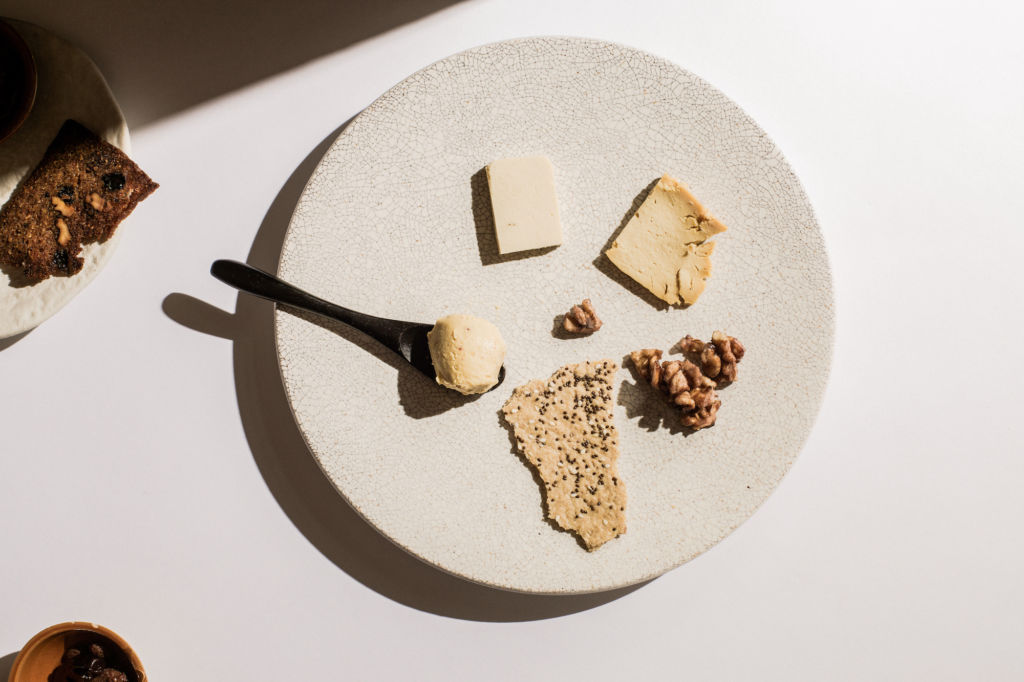
The Nectar Cheese course is simply amazing from its presentation to the selection of hard and soft cheeses. What was your thought process for this interesting course?
Having allergies or dietary restrictions shouldn’t limit a person’s dining experience. I know how it is as a vegetarian and as a vegan to have that kind of feeling. It’s a mindset we need to change. Plant-based food doesn’t need to be boring. We need to think out of the box and we do that for our customers.
Are most of your customers vegans and vegetarians?
Actually, more customers are not vegans or vegetarians. Guests come in because of word mouth or maybe one person at the table is a vegan or vegetarian, or environmentally conscious but the rest may not exactly be inclined. We make sure every dish is purposeful and that we meet the six principles in creating a dish that may be about biodiversity or sustainability. We’re always thinking about this core principle.
Have you been to Macau? What are your impressions of the food scene over there?
I’ve visited mostly for rest and relaxation. I love to take photographs of the older side of Macau. I often visit my friends at The Blissful Carrot, of course.
Do you have any mentors? What have been some of the greatest advice they gave you? Either in or out of the kitchen?
I do have a few mentors. One is my previous boss at Fours Seasons Hotel who is also coincidentally my business partner and also my guidance counselor from when I was in school. Both have made a stable impact on my life. My overall advice in life is to be kind always. It’s great to always have integrity with everything you do and that also shows or manifests on the longevity of our business.
What are your future plans after Nectar? Anything you’d want to branch out on?
The whole purpose of Grassroots and Nectar was to educate. It’s more like putting it out there and people can do their own research and create their own impact and change. It’s not just about the restaurant and how we can maximize the use of a great team in terms of knowledge and skills. We want to form alliances with hotels, restaurants and other educational institutions and be a platform for plant-based cuisine. We’re looking to do consultancy for now due to certain constraints but we’re working on that.
Why do you advocate strongly for a plant-based lifestyle? What can everybody do to start leading a more sustainable life?
There are two things that a person can do. It’s easily applicable in daily life. First is to give your pantry a makeover. Starts with the fats, salts, and ingredients in your cupboard. I’m not saying that these condiments are bad for you, I only want there to be an awareness of good quality. Have some turmeric, ginger, lemons or honey in your pantry. When choosing a vinegar don’t choose the distilled version but the fermented option. It’s just knowing and understanding that there’s an alternative. Second is the fact that everyone eats meat. I’d say if you eat meat then choose the sustainable form. You’ll start understanding when it’s produced ethically. You begin to discern and make the right choices for your body.
Grassroots Initiatives Consultancy www.grassrootsinitiatives.co

